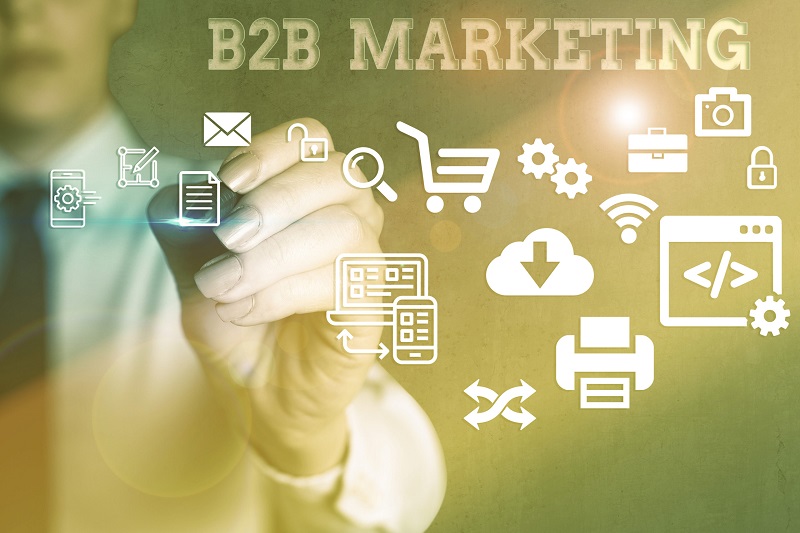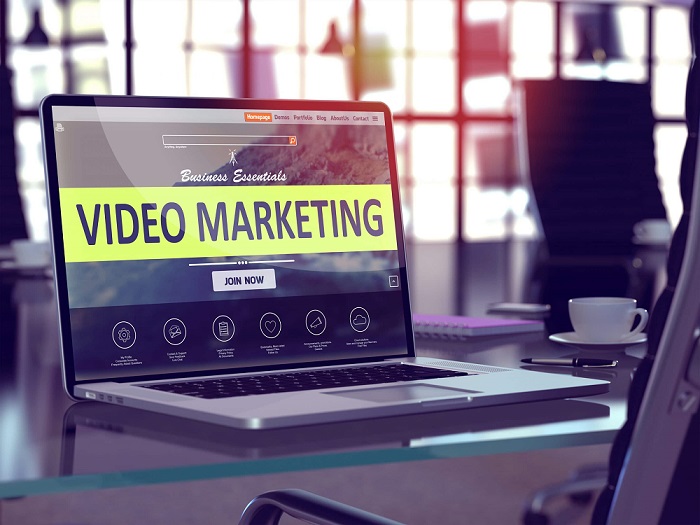As always, welcome to the Linquip. Unlike most of the previous articles that focused on introducing an industrial product or technology, in this article we are at your service with one of the most important marketing topics “Manufacturing Marketing” which is a practical basis toward marketing for industrial manufacturers.
It is very clear that Linquip is a professional industry-focused platform for equipment manufacturers, industrial customers, and service providers helping them to find and connect with other members of this huge family to explore possible opportunities. So much better, as the provider of these services, to provide accurate information in this regard to our contacts.
In this article, we provide information about what Manufacturing Marketing is and what the difference is between manufacturing and consumer marketing. Moreover, we will discuss what new ways of marketing are about to grow in the manufacturers’ world and what benefits manufacturing marketing provides for manufacturers. In addition, we will talk about the challenges that manufacturers are facing in B2B marketing and the Common Strategies used for having successful manufacturing marketing.
Do not forget that our team gathered all of the necessary information on this topic to eliminate the need for reading diverse content on other sources. Stay with us until the end to find the answer to your question on this topic. We have a long journey ahead of us, so take a deep breath, sit back, and keep reading this article until the end like before.
An Introduction to Marketing for Manufacturers
Marketing isn’t a new practice but for some companies in the industrial space, there is still an opportunity to completely embrace its effectiveness especially online. Marketing is a crucial part of a manufacturing organization because it connects manufacturers, wholesalers, and distributors, ensuring your product reaches its end-user. Determining the best ways to market your manufacturing company, on the other hand, can take more time and effort.
For the manufacturing industry, marketing is a crucial part of the business that touches prices, product, and sales. So, it’s important to understand how to use marketing for your success if you want to get more customers, more high-quality leads, if you are interested in increasing revenue and are looking to expand your business into new markets.
Most of companies around the world are spending money and time in content marketing while again most of them are about to upgrade their websites. And as you know the websites for businesses are the most used distribution channel for marketers.
So, do not worry if your current strategy does not work. Because you are not alone. Many other manufacturers meet failures in reaching their business goals. But what is the cure? In the next section, we will join to the world which makes differences to the traditional way of marketing of most manufacturers.
What Is Inbound Marketing and what Does It Do for Manufacturing Businesses?
The Term “Inbound Marketing” is not new but it has still some ambiguities and confusions about its actual entity and what it does. inbound marketing is about meeting the needs of your audience online. Instead of attending trade shows, inbound marketing focuses on creating educational content that pulls people to your website where they can learn more about what you offer on their own time and at their own pace.
However, creating a great blog, eBooks, social media messages and other content are just one segment of the equation. Context is equally as important as content whose alignment is called Persona Targeting which itself is an important component of an effective inbound marketing. You need to offer the right content at the right time to the right people who could use it, helping them along their buying journey.
There is a big difference between the traditional way of thinking about marketing _which meets most of the time failure nowadays_ and inbound marketing. Traditional marketing is just about noisy advertising. Previously, in the industry and among manufacturing companies, whoever had a louder voice was seen more. But now, it is all about trust. And trust is made by providing educational, insightful content showing your expertise and positioning you as a knowledgeable and helpful business partner.
Our new world is the world of “Search”. That is why inbound marketing works. For successful manufacturing marketing strategies, most of the purchases are processed before a customer even calls the company. It means customers are searching and evaluating the business before they directly contact the business. So, it is important to show your manufacturing business with the right content in the right place and for the right people.
Regardless of whether we are marketing in a new or an old way, we must also pay attention to the category of our audience. In the next section, we will discuss the differences between consumer and Manufacturing marketing which are often confused with each other.
Differences in Consumer and Manufacturing Marketing
Before you start creating a marketing plan, you need to understand the client. Are you marketing to businesses or consumers? Or are you marketing to both? If so, you need a plan that covers both channels. If you’re selling both B2B and B2C, make sure to consider the differences between your audiences as you’re crafting your overall marketing strategy. Let us explain how these two are different:
-
Manufacturing Marketing
Manufacturing marketing is actually B2B marketing. It can be more complex, and the sales cycle is longer than with B2C. let’s see the characteristics and processes of Manufacturing Marketing:
- Target audience: You should know which industry you’re targeting, the size and type of companies that need or want your products, and who within those organizations can make purchasing decisions. Some examples of audiences in Manufacturing marketing are other businesses, including downline supply chain manufacturers, wholesalers, retailers, or business end-users.
- Customer needs: Business customers need quality products that fit within their processes and budgets. They need to be able to supply and serve their clients with peace of mind while also making a profit.
- C. Purchase process: Business procurement can be complicated. The process includes discovery and pricing comparisons, quotes, demos, and final purchase decisions. You may have to prove your worth to more than one level of decision-makers; typically, the bigger the purchase is, the more levels you have to impress.
- Individuals involved with the purchase: Managers, purchasing agents, executive decision-makers, accounting or finance teams, and other subject matter experts.
2. Consumer Marketing
B2C marketing is when you market directly to the consumer or end-user. Let’s see what characteristics and processes Consumer marketing possesses.
- Target audience: The demographics of your target audience depend on the product in question. You should know factors like age range, interests, geolocation, income bracket, career, and family status of your target consumers, to appropriately target marketing efforts.
- Customer needs: The consumer wants to buy something that can help them solve a problem or make their life easier or more enjoyable. In some cases, they want a product for the message it sends or status it communicates, like with certain brands or luxury items.
- Purchase process: All consumer purchases follow a basic process that involves awareness, consideration, and decision making. The speed at which a consumer moves through the purchasing process depends in part on the complexity. The buying journey for buying a taco takes seconds or minutes. When shopping for a television or sofa, consumers could take days or weeks.
- Individuals involved with the purchase: In most cases, it’s just the consumer and a significant other or close family member. In larger purchases, lenders may also be involved.
Challenges in Manufacturing Marketing
B2B marketers can face unique challenges that most B2C marketers don’t. The relationships within your organization and outside of the manufacturing firm is complex. Let’s Check out some of these other challenges that manufacturers might face in marketing:
-
Very Specific Needs
Manufacturing marketers have particular needs, especially when compared with general consumer marketers. For example, one of the biggest KPIs for consumer marketing is website traffic. If you can drive enough of the right people to a consumer ecommerce site, the thought is that you’ll make your sales numbers. But manufacturers can’t just drive vast amounts of traffic to a well-built site and cross their fingers.
You might not have huge amounts of traffic to leverage, depending on your business’ niche or vertical. You, also have to balance how much information you want to share on your public-facing website with how you want to manage relationships with your clients. In some cases, you might need to limit access to information about your goods to best support your business partners.
-
Long Sales Cycles
Manufacturing often involves long sales cycles. A PPC ad campaign isn’t going to drive the same results in B2B marketing as it does in B2C marketing, where many people see almost immediate conversion results. Instead, your marketing tactics might be more about brand awareness and lead generation. The leads are then handed over to the sales department for nurturing over weeks, months, or even years before deals close.
-
Complex products
Manufacturing businesses that sell complex products aren’t likely to see great success in marketing direct online sales to B2B buyers. If your product costs $10,000 and has a variety of features to customize, someone’s unlikely to click on a “buy now” button and enter business credit card data. Determine how buyers interact with your products and what they need from you in the early stages of the buying journey.
-
More Involved People to Convince
B2C marketing can rely on some tried-and-true tactics, like leveraging micro-moments, to connect with consumers at just the right time to promote a purchase. Creating a sense of urgency to spark an impulse buy or sending cart abandonment emails are proven B2C marketing methods that can fall short in manufacturer marketing. The reason many of these tactics don’t work as well — or at all — when you’re marketing to other businesses is that there are so many more stakeholders to convince. Business buying decisions in medium and large companies might include:
- Someone in middle management becoming aware of the need.
- That person then has to convince others that there is a need.
- The original person may do some preliminary investigation to demonstrate that there are products to meet the need.
- Executive decision-makers may appoint someone (or a committee of people) to continue with research.
- The field is narrowed down and options are presented to leadership.
- Leadership asks questions to dig into more details, and the field is further narrowed down via demos, quotes, and discussions.
- Finally, a decision is made.
The challenge is that your marketing efforts have to continue to support your chance at making the sale throughout that entire process.
Common Strategies Applied for Manufacturing Marketing
Now that you know why manufacturing marketing is important, how do you go about it? Start with these Common marketing strategies for manufacturing companies.
-
Publishing Written Content
You might have heard that content is king. It’s a saying that’s been around for years, and it still rings true for online marketers today. Your content is the main contributor to all of the following efforts:
- Search engine optimization, which ensures you show up when potential clients search online.
- Positions you as a manufacturer that can be trusted. Close to 50% of people read three to five pieces of content from a business before reaching out for more information or a quote.
- It helps push people further down the funnel. A business contact in the awareness state may find something in your content to help convert them to the consideration state.
Sites that use multiple forms of content can better increase sales. That’s because people engage with different types of content to varying degrees, and one person might want to read about your product while another wishes to view a video. Sometimes, you need to supply both to help educate the potential client, especially in the case of complex manufacturing products.
Consider including video content, whitepapers, case studies, blogs, infographics, and slide presentations on your site. Remember that you’re not the only one trying to convince someone to make a purchase; your contact at a business might be trying to convince stakeholders, and your content can be leveraged to create presentations that do the trick.
-
Email Marketing
As noted above, manufacturing marketing is often a long game. It’s easy for your message to get lost in the shuffle that occurs when potential clients review options, reevaluate priorities and get caught up in managing daily operations. Email Marketing newsletters let you capture interested leads so you can show up in their email inboxes periodically. It keeps you fresh in their minds. Email is also a great tool for marketing automation. You can create drip campaigns to send a series of messages to prospective clients whenever they take a specific action
-
Take Advantages of SEO
Even Google admits that the path to purchase can be long and varied. But a common factor is that many people start purchasing with an online search. most of purchases start online, and most marketers believe SEO is one of the top five traffic drivers. So do not take SEO for granted because if you’re not showing up in the search engines, you’re missing out on many potential leads.
-
Use Google Ads & PPC
But SEO isn’t guaranteed. You can’t buy your way into the top organic page results in Google, and getting there takes a commitment to content, patience, and a little bit of luck. This is why many organizations also invest in Google and PPC ads. Marketing campaigns that include paid efforts can get your manufacturing company on search results pages in minutes, but your ads have to be effective. That means doing the research to understand which keywords to target and understand how your buyer personas might search online.
-
Test Your Website
Once you do have content and other functional elements on your site, test it. It doesn’t matter how awesome your content is if the site provides a poor user experience. If you can’t offer a seamless, easy-to-use site experience, people may doubt your ability to provide quality products and customer experience.
So, make sure All links, buttons, and other functionality on your site work as planned. Check them on multiple devices and in different browsers. Then, ensure your site is mobile-friendly first because Google cares. Sites that don’t function on mobile might be buried or even delisted from SERPs. Second, because your potential clients might start their engagement on mobile. Whether someone is browsing from their own phone or doing research while traveling with a company mobile device, if your site isn’t ready, you’re not ready to make the sale.
-
Video Marketing
Buyers consume millions of hours of video every day, and this type of content is proven to increase engagement, clicks, and organic reach. Try including it in email, blogs, or social posts — or even promoting one as an ad on YouTube. Check out our blog for best practices on video promotion.
-
Integrate Social Media
Social media is another place where you can increase brand awareness and customer loyalty. It also lets you connect with potential clients in an organic way — often where the prospect is already located online. While Facebook, Instagram, and Twitter can be powerful channels for B2B marketing, manufacturers may want to start with LinkedIn and maintain a strong presence there.
Linquip As a Marketing Platform for Manufacturing Companies
Linquip is an industry-focused platform for equipment manufacturers, industrial customers, service providers, industry-savvy consumers, and researchers. With the help of Linquip, industry experts and companies are able to connect with each other and explore possible opportunities.
Building a Powerful Industry-Related Profile and creating an industry-focused profile where you can concentrate on your industrial abilities is almost impossible on other sites and services. A profile on Linquip helps you showcase your skills based on industrial equipment, so you will be introduced when someone looks for an expert on a specific device.
And if you are Looking for equipment suppliers or service providers, you can Find top service provider companies to manage your industrial equipment services operations such as equipment installations, maintenance, and repair services. Also, industrial companies can find their proper service provider and gain access to thousands of industry-leading suppliers around the globe with the ability to contact them and find supplemental solutions for their projects through Linquip’s services.
Linquip is a comprehensive resource of industrial equipment from energy equipment, to solar panels, wind turbines, and diesel engines, you can find any devices with its information and specifications on Linquip. Moreover, you can find and get in contact with any related experts, distributors, and service providers and get quotes from them.
Conclusion
The present article was an attempt to deal with Manufacturing Marketing and deliver all the essential information about how it works for manufacturing businesses and companies. In this article, we provide information about what Manufacturing Marketing is and what the difference is between manufacturing and consumer marketing.
Moreover, we will discuss what new ways of marketing are about to grow in the manufacturers’ world and what benefits manufacturing marketing provides for manufacturers. In addition, we will talk about the challenges that manufacturers are facing in B2B marketing and the Common Strategies used for having successful manufacturing marketing.
Linquip is an associate industry-focused platform for equipment makers, industrial customers, service suppliers, industry-savvy customers, and researchers. With the assistance of Linquip, business specialists and corporations are ready to connect with one another and explore attainable opportunities.
Building a strong Industry-Related Profile associated with making an industry-focused profile wherever you’ll consider your industrial talents is sort of not possible on different sites and services. A profile on Linquip helps you showcase your skills based on industrial equipment, so you will be introduced when someone looks for an expert on a specific device.









